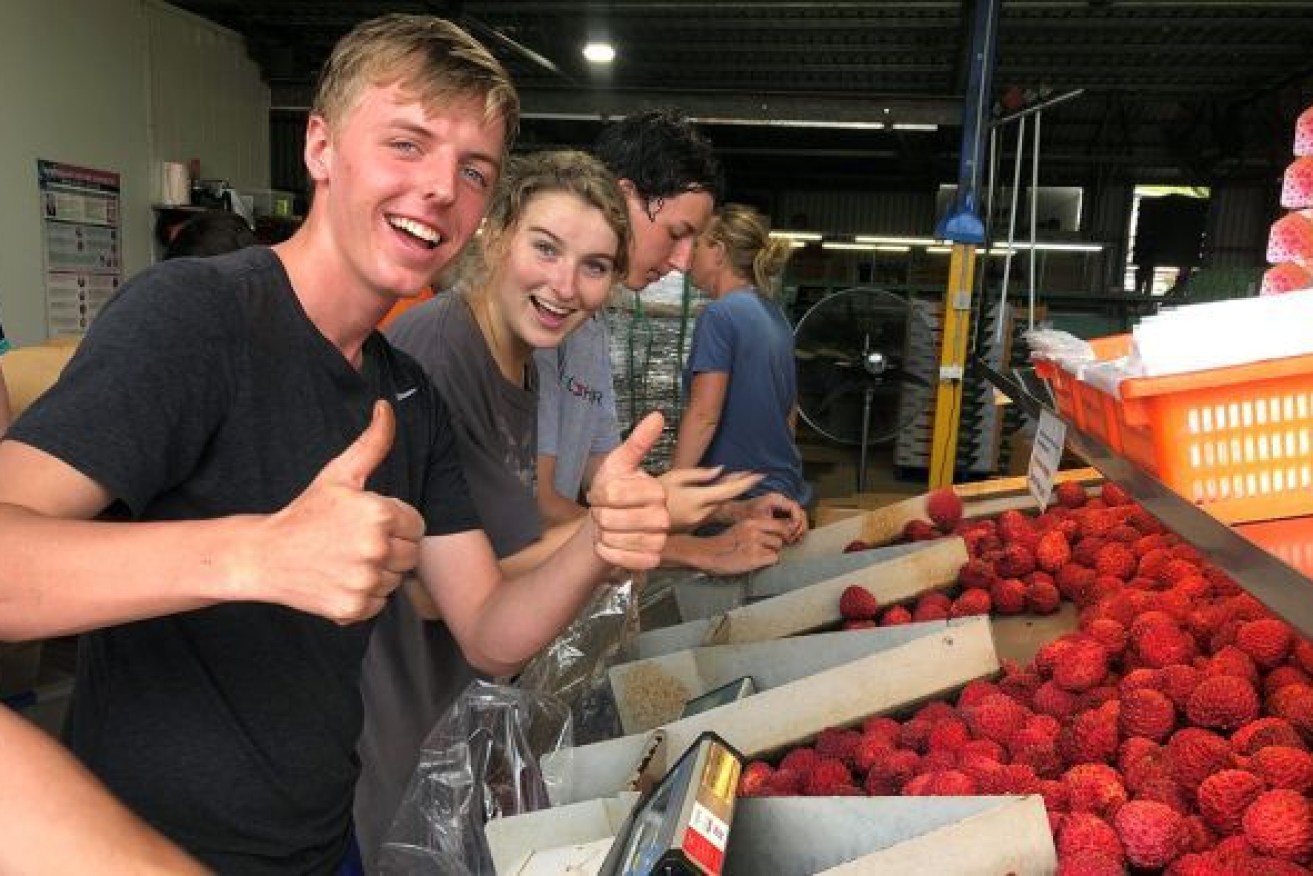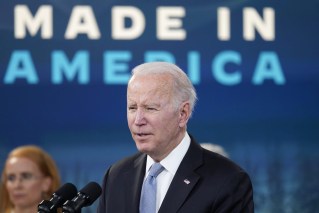All over the map: Changes to ‘pub visas’ deal another blow to battling farmers
Farm groups are slamming Immigration Minister Alex Hawke’s decision to extend working visa arrangements to tourism and hospitality, arguing it will leave them desperately short of labour at a time when the economy needs agriculture to fire.


University students like Max Manassero are addressing some of the farm labour shortage. Photo: ABC
Hawke announced changes to what is called the Working Holiday Maker visa last week in a bid to funnel more overseas workers into the tourism and hospitality sectors.
The changes only relate to areas defined as “northern, remote and very remote” Australia, a loose classification that is causing confusion about where the new arrangements will take effect.
Questions to Hawke’s office about the new arrangements were directed to the Department of Home Affairs, where a staffer then re-directed InQueensland to a department website which lists the locations via postcode here.
According to the classifications, northern Australia is defined as all locations ‘north of the Tropic of Capricorn’, which equates to north of Rockhampton.
Other postcodes in the ‘remote and very remote’ category include Moreton and North Stradbroke Islands in south-east Queensland and large areas of southern and western Queensland, including, for example, the Surat Basin, where some of the biggest gas and coal interests in Australia already compete with agriculture for resources and labour.
National Farmers Federation and its allies in Queensland such as Growcom and AgForce are angry with the move, and say there was no consultation prior to the June 22 announcement.
“It’s inconceivable that the minister would make this decision seemingly with the flick of a pen, with not so much as a phone call to farm groups, let alone meaningful consultation with farmers, at a time when agriculture is dealing with an unprecedented worker shortage,” NFF CEO Tony Mahar said in a statement issued on Tuesday.
Growcom’s chief advocate, Richard Shannon, whose organisation represents the state’s horticulture producers, said he was “blindsided” by the decision.
“I only knew about this when I saw NFF’s statement,” he said.
“It appears to have been kept very quiet.”
The WHM visa program was established with the specific aim of supplying overseas labour to the farm sector, requiring foreign workers to work on farms for a minimum of 88 days in order to receive additional time on their visa for a second or third year.
The changes announced by Hawke mean workers can now shift those 88 days to working in restaurants, pubs or motels.
The Brisbane-based national vice president of the Migration Institute, Leanne Stevens, said she understood why farmers were angry.
“The working holiday visa has been in a mess for the last 18 months due to Covid,” she said.
“But it still has been the mainstay program used by farmers to source their labour. Now when we’ve had very little overseas workers coming in due to international border closures, those few that are here have permission to go and work in a pub or restaurant.”
Agriculture Minister David Littleproud is adamant farmers will not be disadvantaged by the changes, insisting that amendments to the visa requirements were made in the interests of supplying more labour to a wider spread of industries in remote communities.
“While most parts of regional Australia have a labour shortage our remote communities are particularly desperate,” he said.
“The government is trying to not only support these parts of Australia but has also taken preemptive steps to support agriculture by establishing a designated ag visa before the end of the year.”
Growcom chief executive Stephen Barnard said the change defied logic and ran counter to all available evidence, including analysis from the Queensland Department of Agriculture and Fisheries which found the Queensland horticulture sector is currently short up to 9000 workers.
“The requirement to work on farm was there for a reason. We won’t dispute the average backpacker would prefer to pour beers in Port Douglas than pick mangoes in Mareeba,” he said.
“So now we’re going to see an exodus of workers from agriculture into pubs, clubs and restaurants right when we need them the most.
“Which is obviously back to front and suggests the Federal Government doesn’t take our food security seriously at all, or the welfare of farmers and the viability of their businesses.
“Next time Minister Hawke orders a counter meal at the pub, he should consider where his fresh salad, steamed vegetables, hot chips and steak come from. There’s no point having great service if there’s nothing to eat.”
Barnard said the change also made little sense because overseas backpackers would typically work in tourism and hospitality roles after completing their 88 days on a farm.
Joe Moro, president of FNQ Growers in Mareeba, said his industry was finding it hard to recruit workers already without further uncertainty in the visa program.
“We don’t want the working holiday visa undermined,” he said.
“Nothing is clear at the moment, we have no idea how any of it is going to work. We don’t even know what areas it applies to.”
NFF CEO Tony Mahar said his members had “big hopes” for the special ‘Ag Visa’ endorsed by Prime Minister Scott Morrison and Littleproud to steer them through the mess.
“But it’s very early days, there is a mountain of detail to be worked through before the visa is ready to deliver meaningful relief to farmers’ labour challenges,” he said.
“This latest decision is frustrating for farmers as it looks as if the government is trying to give with one hand and take with the other.”
The permanent changes announced by Hawke are effective immediately and have the potential to particularly impact northern Australia cattle station operators, who rely on UK and European backpackers, and the northern horticulture industry.
“Even before Covid-19, farmers faced a significant workforce shortage. The shutting of borders meant a tough situation soon became a critical one. Farmers have been forced to leave produce to rot and some are now making decisions to scale down their operations,” Mahar said.
“This is exactly what rural and regional communities don’t need.
“Worker shortages will be even more dire this season with international borders still closed, and overseas workers continuing to return home without being replaced by new arrivals.
“Agriculture has continued to supercharge the nation’s economy throughout the Covid-19 pandemic. To continue to do the heavy lifting farmers need significantly more workers, not less.
“We await more detail from Minister Hawke to explain what seems like a misguided and rash decision, to say the least.”









